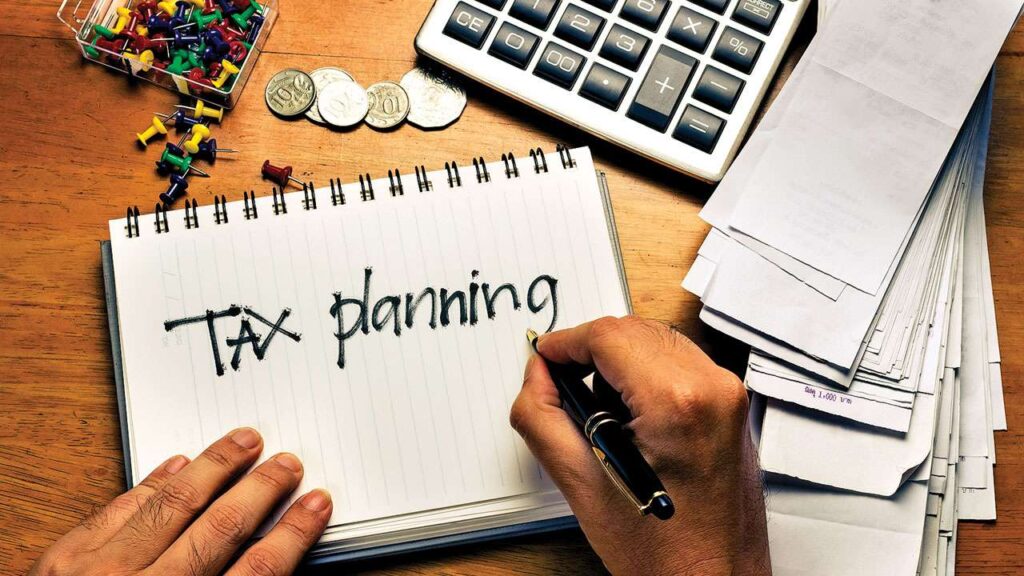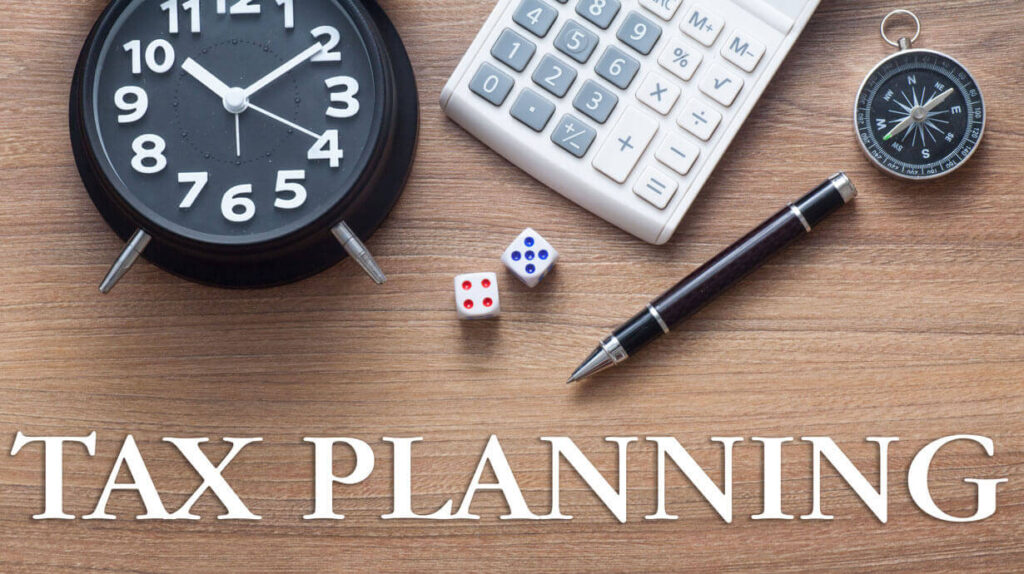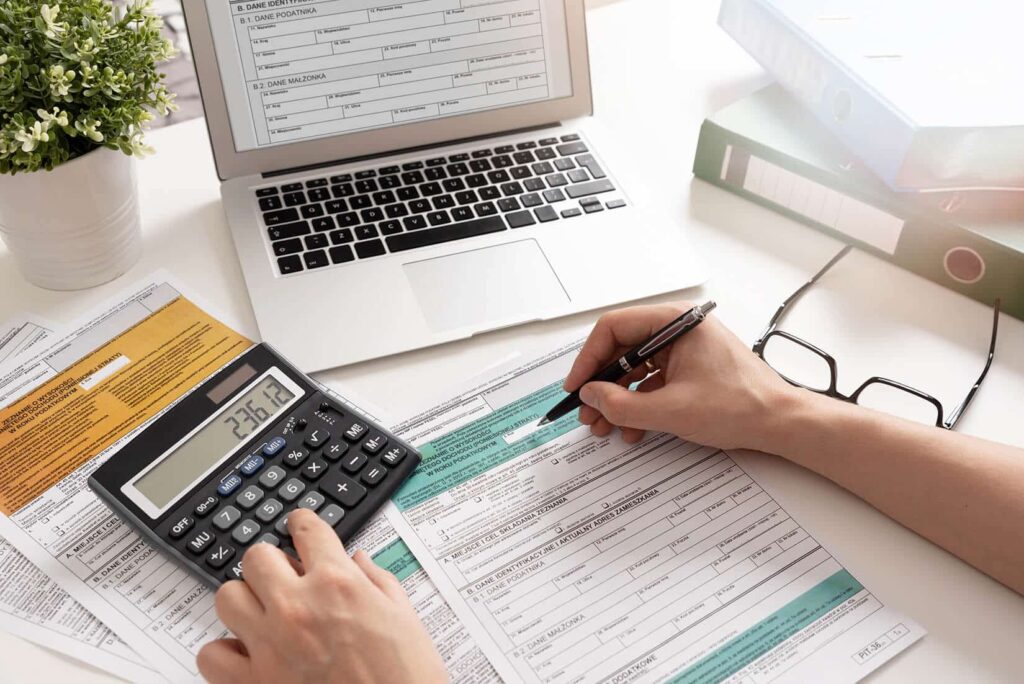Taxes play a significant role in our financial lives. They can impact our ability to achieve our financial goals and determine the amount of money we have available to invest, save, or spend. With careful tax planning and efficient tax management, we can minimize our tax liabilities and maximize our financial efficiency. In this article, we will explore the importance of tax planning, the key elements of a successful tax roadmap, strategies for tax efficiency, navigating tax laws and regulations, and seeking professional tax planning assistance.
Understanding the Importance of Tax Planning
Tax planning is the process of analyzing your financial situation and creating a roadmap to minimize your tax liabilities. By proactively managing your tax planning strategies, you can take advantage of various tax-saving opportunities and optimize your financial success.
The Role of Taxes in Financial Planning
Taxes have a significant impact on our financial planning. They affect our income, investments, retirement accounts, and estate planning. Considering tax implications when making financial decisions can help us maximize our wealth and protect it for the future.
For example, let’s say you’re considering investing in a rental property. While the potential rental income may seem appealing, it’s crucial to also evaluate the tax consequences. By carefully analyzing the tax implications, you can determine if the investment aligns with your overall financial goals and if it will generate the desired after-tax returns.

Furthermore, taxes play a crucial role in retirement planning. As you accumulate wealth in your retirement accounts, such as a 401(k) or an IRA, it’s important to understand the tax implications of different withdrawal strategies. By strategically planning your withdrawals, you can minimize your tax liability and ensure a steady stream of income throughout your retirement years.
Benefits of Efficient Tax Management
Efficient tax management can result in several benefits. It can increase your after-tax income, reduce your tax burden, improve your cash flow, and provide more funds for savings and investments. By reducing unnecessary tax expenses, you can create a solid foundation for financial success.
One of the key benefits of efficient tax management is the ability to take advantage of tax deductions and credits. These can include deductions for mortgage interest, student loan interest, medical expenses, and charitable contributions. By carefully tracking and documenting these expenses, you can lower your taxable income and potentially receive a larger tax refund.
In addition, efficient tax management can help you optimize your investment returns. By strategically allocating your investments across different types of accounts, such as taxable accounts, tax-deferred accounts, and tax-free accounts, you can minimize the impact of taxes on your investment gains. This can result in higher overall returns and a faster accumulation of wealth over time.
Overall, tax planning is a crucial aspect of financial management. By understanding the role of taxes in your financial planning and implementing efficient tax management strategies, you can maximize your wealth, protect your assets, and achieve long-term financial success.
Key Elements of a Successful Tax Roadmap
A successful tax roadmap consists of several key elements that work together to optimize your tax situation. These include identifying your financial goals, assessing your current tax situation, and planning for future tax liabilities.
Identifying Your Financial Goals
Before embarking on tax planning, it’s crucial to identify your financial goals. Do you want to save for retirement, purchase a home, start a business, or support your children’s education? By understanding your long-term objectives, you can align your tax planning strategies to support your goals.
For example, if your financial goal is to save for retirement, you may want to consider contributing to tax-advantaged retirement accounts, such as a 401(k) or an Individual Retirement Account (IRA). These accounts offer tax benefits that can help you grow your retirement savings faster.
On the other hand, if your goal is to purchase a home, you might explore tax incentives related to homeownership. Depending on your location, you may be eligible for deductions on mortgage interest payments or property taxes, which can help reduce your overall tax liability.
Assessing Your Current Tax Situation
To create an effective tax roadmap, you need to assess your current tax situation. Review your income, deductions, and credits to determine potential areas for tax optimization. Consider consulting with a tax professional to ensure you’re taking advantage of all available tax-saving opportunities.
For instance, if you’re a small business owner, you may be eligible for various tax deductions related to your business expenses. These deductions can include office rent, equipment purchases, and even business travel expenses. By carefully analyzing your current tax situation, you can identify these deductions and maximize your tax savings.
Furthermore, if you have significant medical expenses, it’s important to understand the tax rules surrounding medical deductions. Certain medical expenses that exceed a certain percentage of your income may be deductible, potentially reducing your tax liability. However, it’s essential to keep detailed records and consult with a tax professional to ensure compliance with the IRS guidelines.

Planning for Future Tax Liabilities
Anticipating future tax liabilities is an essential component of a tax roadmap. Consider changes in your personal circumstances, such as a higher income, marriage, or starting a business, that may impact your tax situation. By planning ahead, you can minimize surprises and optimize your tax strategies.
For example, if you’re planning to start a business, it’s important to understand the tax implications of different business structures. Depending on your business type, you may be subject to different tax rates and reporting requirements. Consulting with a tax professional can help you navigate these complexities and develop a tax strategy that aligns with your business goals.
Additionally, if you anticipate a significant increase in income due to a promotion or career change, you may want to explore tax planning strategies to minimize your tax burden. This could involve maximizing your retirement contributions, exploring tax-efficient investment options, or even considering charitable contributions to reduce your taxable income.
In conclusion, a successful tax roadmap involves identifying your financial goals, assessing your current tax situation, and planning for future tax liabilities. By taking a proactive approach to tax planning, you can optimize your tax situation and work towards achieving your long-term financial objectives.
Strategies for Tax Efficiency
When it comes to taxes, finding ways to enhance your tax efficiency and reduce your tax liabilities is always a smart move. Fortunately, there are several strategies you can employ to achieve just that. Let’s dive into some of the most effective tactics:
Utilizing Tax-Advantaged Accounts
One of the most popular strategies for maximizing tax efficiency is utilizing tax-advantaged accounts. These accounts, such as Individual Retirement Accounts (IRAs) or Health Savings Accounts (HSAs), offer incredible tax benefits that can help you save for retirement or cover medical expenses. By contributing to these accounts, you not only reduce your taxable income but also potentially grow your savings tax-free. It’s a win-win situation!
For example, let’s say you contribute to an IRA. The money you contribute is tax-deductible, meaning it reduces your taxable income for the year. Additionally, any earnings generated within the IRA are tax-deferred until you withdraw the funds in retirement. This allows your savings to grow faster, as you’re not paying taxes on the gains each year. It’s like giving your money a little extra boost!
Leveraging Tax Deductions and Credits
Another effective strategy for tax efficiency is leveraging tax deductions and credits. Deductions, such as mortgage interest or student loan interest, reduce your taxable income, ultimately lowering your overall tax burden. On the other hand, tax credits, such as the Child Tax Credit or the Earned Income Tax Credit, provide a dollar-for-dollar reduction in your tax liability. It’s like finding hidden treasure!
Let’s say you’re a homeowner. By deducting your mortgage interest, you can significantly reduce your taxable income. This means you’ll owe less in taxes, allowing you to keep more of your hard-earned money. Similarly, if you qualify for tax credits, such as the Child Tax Credit, you can directly reduce the amount of tax you owe. It’s like getting a discount on your taxes!
Timing Income and Expenses for Tax Benefits
Timing is everything, especially when it comes to optimizing your tax situation. By strategically timing your income and expenses, you can maximize your tax savings. For example, consider deferring income to a lower tax year. By doing so, you can potentially push yourself into a lower tax bracket, resulting in significant tax savings. It’s like playing a game of chess with the IRS!
On the flip side, accelerating deductible expenses can also be advantageous. Let’s say you have a major medical expense coming up. By paying for it before the end of the year, you can potentially deduct it on your current year’s tax return, reducing your taxable income. It’s like turning an expense into a tax-saving opportunity!
Of course, it’s important to note that everyone’s tax situation is unique, and what works for one person may not work for another. Therefore, it’s always a good idea to consult with a tax professional who can provide personalized advice based on your specific circumstances. They can help you navigate the complex world of taxes and ensure you’re making the most of every opportunity to enhance your tax efficiency.

Navigating Tax Laws and Regulations
Staying informed about tax laws and regulations is essential for effective tax planning. Tax laws change regularly, and understanding the latest updates can help you make informed decisions and avoid potential penalties.
Keeping Up with Tax Law Changes
Subscribe to reliable sources of tax information or consult with a tax professional to stay updated on changes to tax laws. Being aware of new deductions, exemptions, or credits can provide opportunities to optimize your tax strategies and increase your tax efficiency.
Understanding Tax Obligations and Penalties
Complying with tax obligations is vital to avoiding penalties and ensuring financial efficiency. Familiarize yourself with your tax filing deadlines, reporting requirements, and potential penalties for non-compliance. Establishing good record-keeping practices and staying organized can simplify your tax filing process.
Seeking Professional Tax Planning Assistance
While some individuals are comfortable navigating tax planning on their own, others may benefit from seeking professional assistance. A tax professional can provide expertise, guidance, and personalized advice to help you create a comprehensive tax roadmap.
When to Consider Hiring a Tax Professional
Consider hiring a tax professional if your financial situation is complex or if you lack confidence in your tax knowledge. Tax professionals can assist with tax planning, preparation, and compliance, ensuring you’re taking full advantage of available tax-saving opportunities while minimizing your risk of errors or audits.
Choosing the Right Tax Advisor for Your Needs
When selecting a tax advisor, consider their qualifications, experience, and reputation. Look for professionals who specialize in tax planning and understand the unique tax considerations relevant to your financial goals. Seek recommendations, read reviews, and conduct interviews to ensure you find the right tax advisor for your needs.
Conclusion
Creating a tax roadmap is an essential step towards financial efficiency and success. By understanding the importance of tax planning, identifying your financial goals, minimizing tax liabilities through strategic tax strategies, staying informed about tax laws, and seeking professional assistance when needed, you can craft a tax roadmap that optimizes your financial situation and paves the way for a prosperous future.
Other resources: The Year-Round Benefits of Strategic Tax Planning
